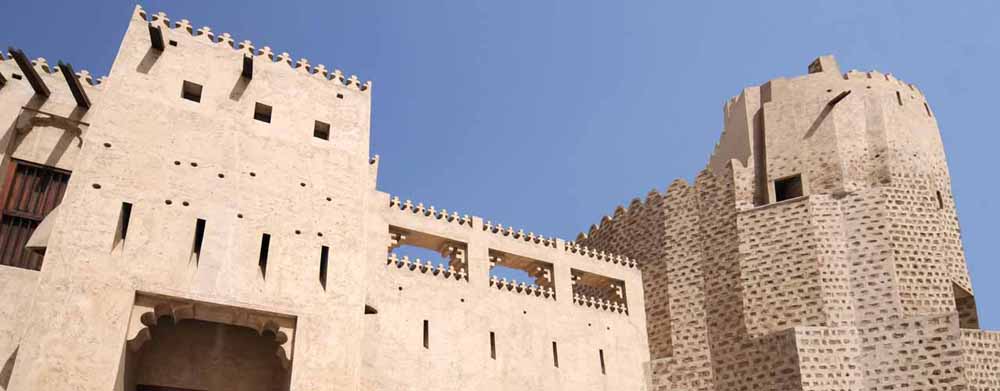Sharjah’s Al Hisn Fort restored to glory
By admin Sunday, 10 May 2015 5:23 PM

For almost 200 years, Al Hisn Fort has stood guard over Sharjah, its cannons and towers facing towards the sea to protect the emirate’s residents, rich and poor, from any would-be enemy.
As the city grew, the fort, which is now surrounded by the modern urban sprawl of roads and tower blocks, became less a symbol of security and more a reminder of the emirate’s long and proud history.
Now returned to its former glory as part of an extensive 15-month renovation project, the fort can be seen as it was in its prime, with distinctive features including wind-scoops, columns and crenelations that tourism bosses hope will help to attract visitors.
“Al Hisn Fort really is the very heart of Sharjah, having been the seat of government, the centre of defence and justice in the emirate. Its legacy resonates in modern Sharjah like no other building,” said Manal Ataya, director general of Sharjah Museums Department.
“Thanks to the meticulous work of a team of conservationists, many of the fort’s distinctive architectural features have been brought back to life. It has been updated to provide an enriching experience that will give visitors a unique feel for what life would have been like through the different periods of Sharjah’s past.”
Over the years, the fort has been used as the residence of the ruling Al Qasimi family, the seat of Sharjah’s government, a jail and a police station.
The restoration work included returning the fort, which was built in 1823 during the reign of Sheikh Sultan bin Saqr II, to its original colour and design by using coral stones from Abu Musa Island, Ms Ataya said.
“The shape of the building is similar to the fort’s detail in the 1920s. In the last period, Al Hisn was converted to a police station and it was painted white and had floral decorations, but we didn’t save these.
“We also didn’t add anything to the building, just prayer and rest rooms, an elevator, shop and the mother’s room because we need those in the museum. Other than that, all rooms are original but have been restored.”
In order to accurately tell the fort’s history, officials from the SMD reached out to the Emirati community in Sharjah and beyond through a series of interviews to gather stories about the role it played in shaping the emirate, Ms Ataya said.
“Much of the information on display is based on the memories and oral histories of the community and reflects one of our main goals: to ensure that our museums are about real people, not just antiquities.”
This oral history was painstakingly collected over 5 years and helped to shape the displays in the fort’s 12 galleries.
“There is information we collected from people at the age of 90 and above,” said Khuloud Al Houli, the fort’s curator. “Some of them are from the emirate and others from Kalba and Ras Al Khaimah.”
In the Qawasim gallery, visitors can learn about the origins of the Qasimi family as they battled regional and foreign powers to gain territories, defend their existing lands and protect their livelihood. The gallery also highlights their financial and naval strength. An original Quran holder dating to the mid-1860s is among the treasures on display.
Sheikh Sultan bin Saqr II’s story is also explored.
Visitors can step inside the Arrest Room, where prisoners were held pending trial, and the circular, coral stone prison cells. Information boards offer an insight into the trial process and the kinds of punishment handed out for various crimes, while the Armoury contains historic firearms, ammunition and traditional edged weapons, such as swords and daggers and information on how residents of Sharjah decorated and repaired their weapons.
Dr Sheikh Sultan bin Mohammed Al Qasimi, Ruler of Sharjah, recently visited the fort along with Sheikh Sultan bin Mohammed bin Sultan, Crown Prince of Sharjah, to inspect the renovation work.
The fort is open to visitors Saturday to Thursday from 8am until 8pm and on Fridays from 4pm until 8pm.




























Add new comment